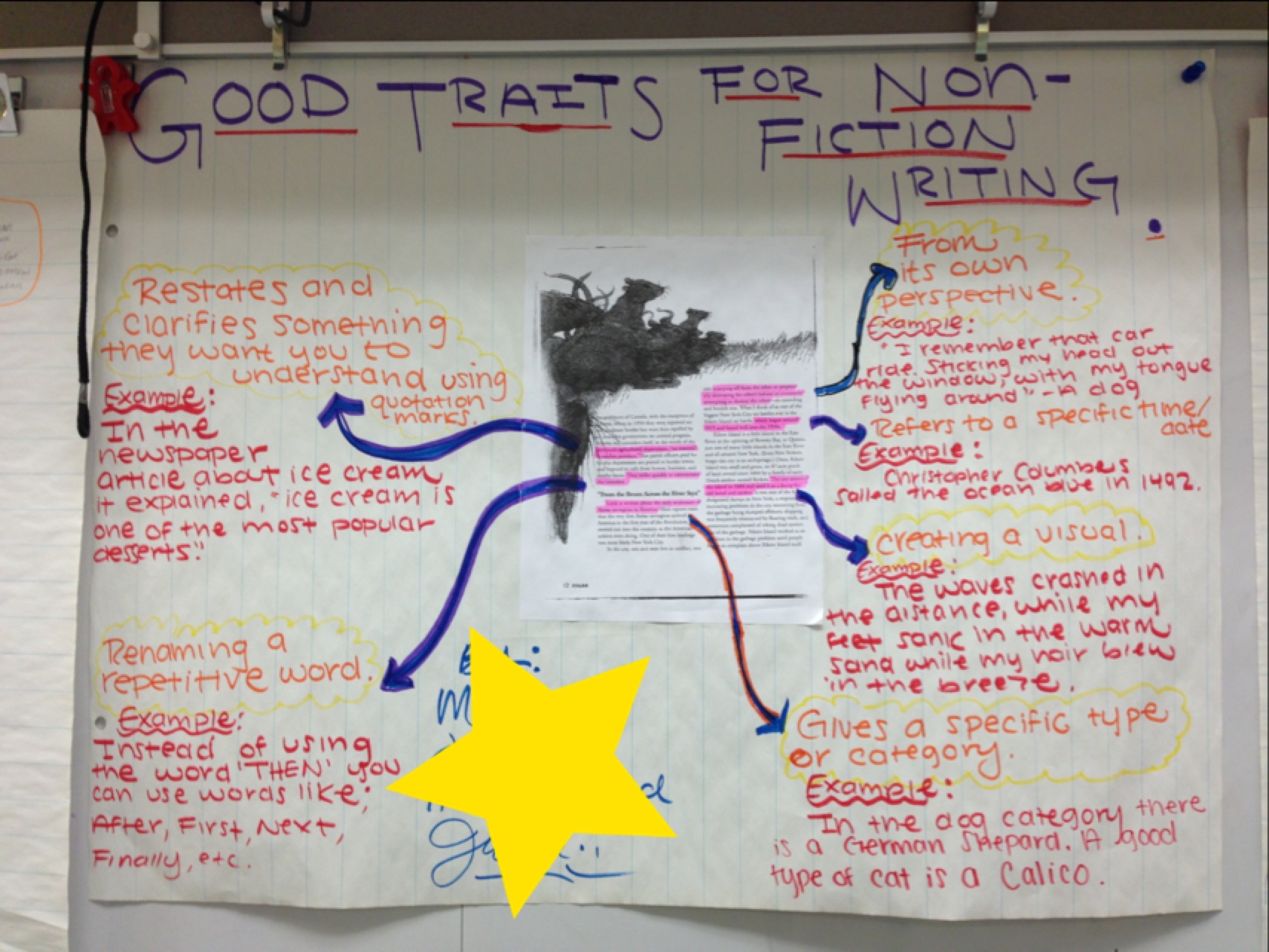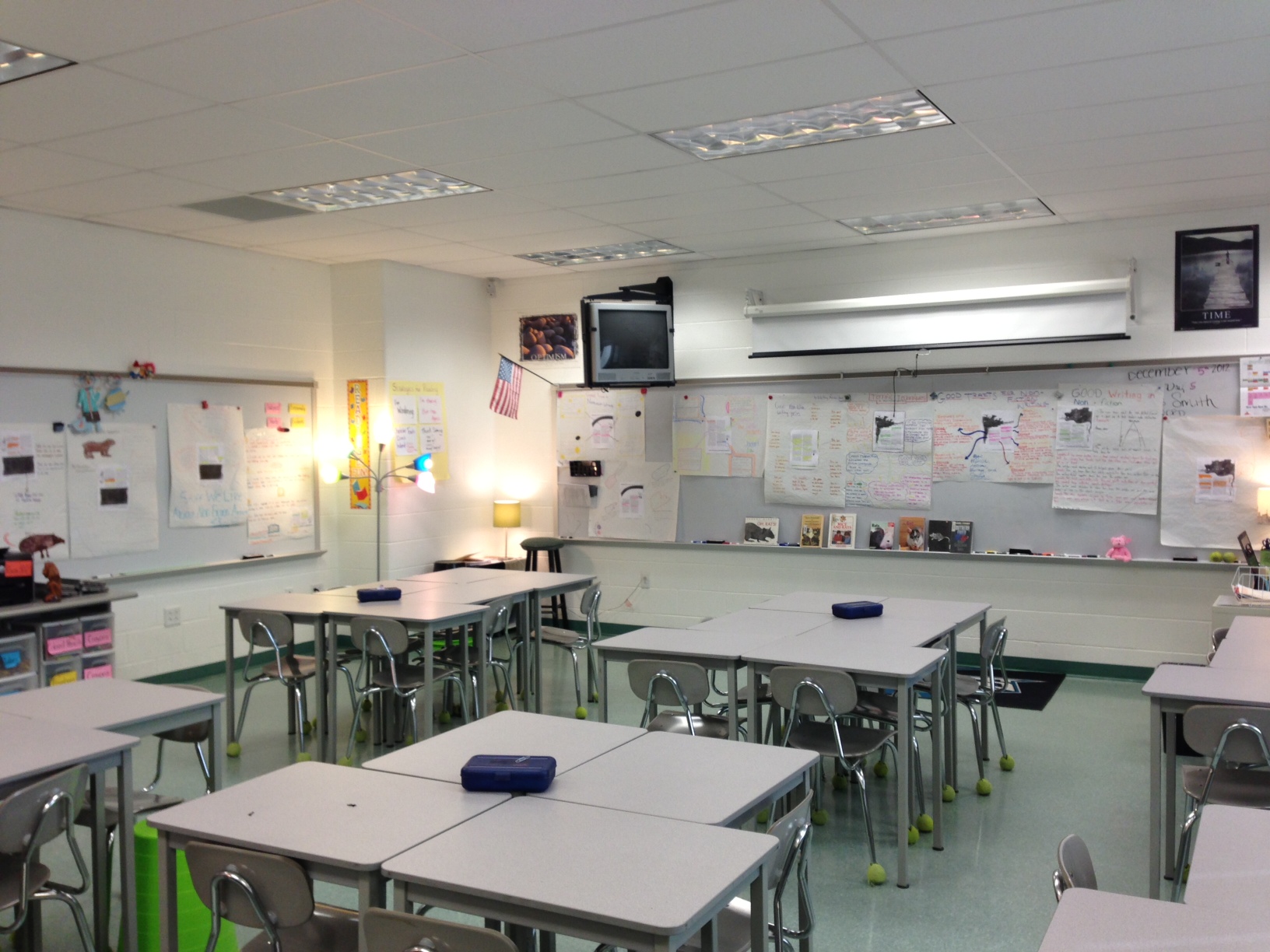I almost just told them to start writing.
I have to be real with you; we’ve been researching for what feels like forever, it hasn’t been boring; they’ve been so excited about with topics they choose themselves. In order to keep the momentum going (okay and maybe my sanity), I almost just told them “Okay write it.”
But I didn’t.
“When learning to write like an expert there is no greater teacher than published books and articles; they can prop us up when we feel stumped for ideas and stand in as engaging and confident models when we wish to inspire our student researchers.”— Chris Lehman, Energize Research
So in the mist of the gathering information, we put their research folders away. We reviewed what good researchers do, and then we read feature articles (since that’s what we’re writing) with power.
Instead of me simply telling them, “Good nonfiction writing is descriptive, it’s full of expert words, and it teaches the reader.”
I said, “Hey, this piece should be boring, it’s nonfiction right? But why are we all laughing? What’s so cool about that fact?”
And together we made wall charts, LOTS of them. Usually I am the wall chart maker in the room, but on this one, I put the markers down and let the kids teach. They pasted a copy of good nonfiction writing in the middle, highlighted what they liked, then defined the skill. After they defined the skill they tried to write an example of that skill with a different nonfiction topic.
This took the WHOLE class (see 90 minutes); I would gladly give it up again.
In the end, we had a wall chart gallery walk. The kids took notes on strategies they thought they could use in their piece. We voted on strategies we thought everyone should definitely use. In the end, we researched writing, in the middle of researching another topic— their writing will be stronger for it.
And to think, I almost just told them to start writing!

